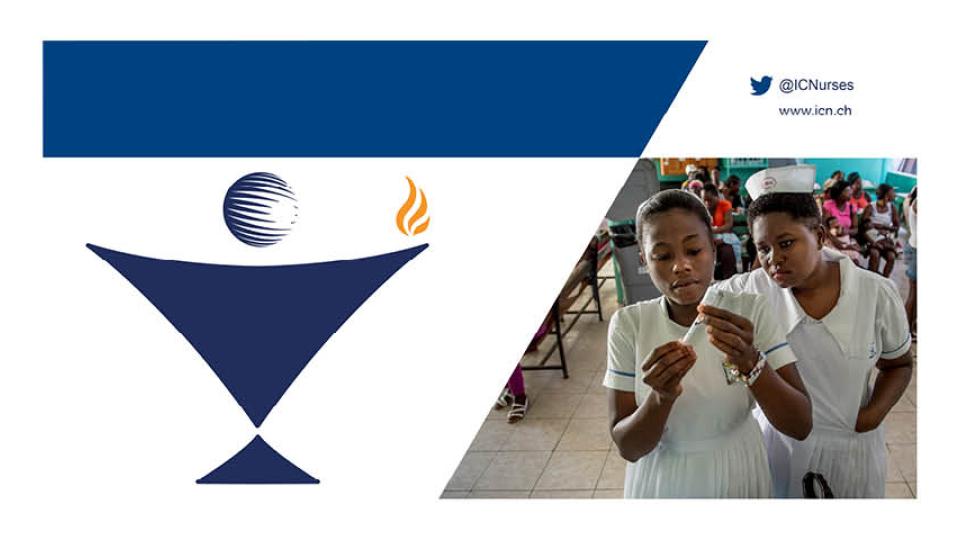It’s time to end TB

Geneva, Switzerland; 22 March 2019 – On World Tuberculosis Day, the International Council of Nurses (ICN) agrees – It is Time to End TB - #ItstimetoendTB.
This year’s theme for World TB Day is It’s Time to End TB to continue to build on the momentum of the first United Nations high-level meeting on TB in New York last September. The theme is intended to bring attention to TB, and hold heads of state, ministers, health professionals, affected communities as well as community and local level leaders accountable for the key commitments made during the meeting to end TB once and for all.
The International Council of Nurses (ICN) has trained thousands of nurses around the world in support of the World Health Organization’s End TB strategy.
ICN TB project director Dr Carrie Tudor said training experienced nurses in the prevention, care and treatment of the condition, and getting them to pass on their knowledge to other healthcare staff, is the key to improving patient care.
“Nurses are uniquely placed to help eradicate TB from the world once and for all,” Dr Tudor said.
There have been positive developments in the fight against TB in recent years, including new medications to treat drug-resistant TB (DR-TB), better and faster diagnostics, and new treatment formulations for children. “But while the lives of 54 million people with TB have been saved since 2002, it remains a major global health threat.”
ICN’s TB/MDR-TB project, trains experienced nurses to cascade information to nursing colleagues and other health workers to improve patient care delivery.
ICN CEO Howard Catton said: “We are incredibly grateful to Eli Lilly and United Way Worldwide for its funding of our TB/MDR-TB project since 2005, as part of its Eli Lilly MDR-TB Partnership. Without that funding, the thousands of health workers who have benefited from our programme would not be in a position to help in the fight against this deadly disease.”
The project’s practice-based courses are run in countries with a high burden of TB and MDR-TB, where ICN has a strong working relationship with the local national nurses’ associations.
The ICN TB/MDR-TB project has trained 2,300 nurses through ‘Training for Transformation’ courses in 17 countries in Africa, Asia, and the Russian Federation. These nurses have in turn rolled out the training to more than 176,000 nurses, doctors, allied health workers and community members, which equates to each nurse training approximately 76 additional people. The ICN TB/MDR-TB Project has found that at the start of training many nurses have poor knowledge of TB; specifically risk factors, signs and symptoms of TB, methods used to diagnose TB and standard treatment. Following training, nurses’ knowledge scores increase significantly by 20 to 30%.
One nurse from Uganda said: ‘Nurses spend the most time with patients, so when empowered with knowledge on treating TB, it is a benefit to all. It leads to good adherence, good outcomes and a healthy community for all. Through this, we will reach our goal - a TB-free world in 2030.’
Dr Tudor says nurses are vital in the fight against this killer disease: ‘Nurses are on the front lines every day across the globe. They play a critical role in improving case detection, initiating patients on appropriate treatment, providing ongoing support to patients and improving treatment outcomes.
Nurses account for half of all healthcare workers globally, and this percentage is higher in many parts of the world most affected by TB, such as sub-Saharan Africa. In many places around the world nurses are the only source of care. ICN agrees that “It’s Time to End TB” and nurses can make that happen.
TB continues to affect nearly 10 million people worldwide every year with roughly 1.6 million people dying from the disease - more than 4,000 people die every day from this curable disease. TB remains the leading cause of death from an infectious disease and kills more people than HIV/AIDS. Of an estimated 558,000 people who fell ill with drug-resistant TB (DR-TB) in 2017, only 25% received treatment and of those, only 55% were successfully treated. Deaths due to DR-TB account for nearly one-third of all deaths due to antimicrobial resistance (Source: WHO Global TB Report 2018).
More than 3.6 million people with tuberculosis go undiagnosed and untreated each year. Many of those missed will either die or be placed on inappropriate treatment – many will not be treated and continue to infect others in their communities. Nearly half a million will be diagnosed with DR-TB, which is more difficult and more expensive to diagnose and treat. Major efforts are needed to close this gap and nurses on the front lines play an important role in detecting, diagnosing, and treating these patients.
Note for Editors
The funding for the ICN TB Project will end at the end of March 2019 and ICN is grateful to Eli Lilly and United Way Worldwide for all their support to train nurses on the front lines in the fight against TB.
The International Council of Nurses (ICN) is a federation of more than 130 national nurses’ associations representing the millions of nurses worldwide. Operated by nurses and leading nursing internationally, ICN works to ensure quality care for all and sound health policies globally.
For further information please contact
Gyorgy Madarasz, Press Officer, International Council of Nurses, Tel: +41 22 908 01 16
ICN/PR2019#08